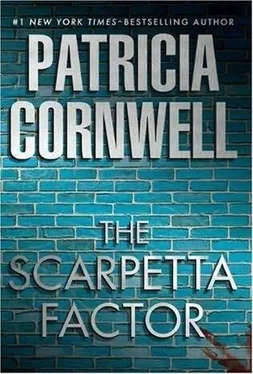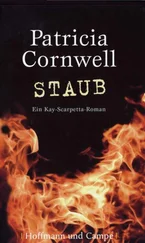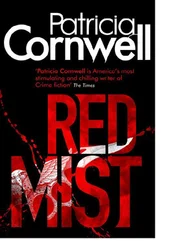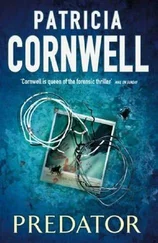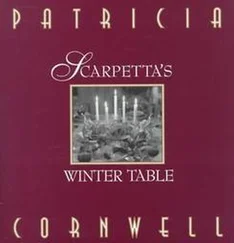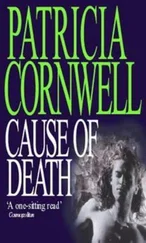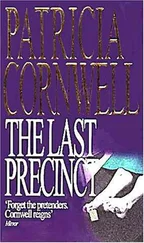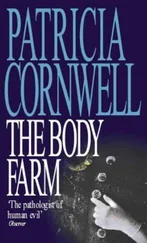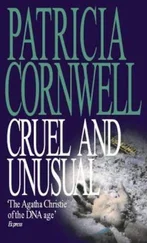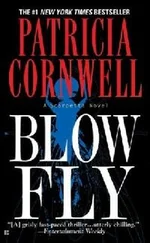Benton didn’t answer because he knew better. He knew what to do and what not to do on the rare occasion Scarpetta got this upset, and she thought she smelled the package again, and then she smelled the embayment, the Laguna Veneta. The shallow salt water and the warmth of the spring sun as she and Benton climbed out of the water taxi at the landing stage in Colonna, following the fondamenta to Calle San Cipriano. Factory visits weren’t allowed, but that hadn’t stopped her, tugging Benton by the hand past a barge filled with waste glass, to the “Fornace-Entrata Libera” entrance sign and inside, asking for a demonstration in an open space with furnaces like crematoriums and dark-red-painted brick walls and high ceilings. Aldo the artisan was small with a mustache, in shorts and sneakers, from a dynasty of glassblowers, an unbroken lineage stretching back seven hundred years, his ancestors having never left the island, not allowed to venture beyond the lagoon upon penalty of death or having their hands cut off.
Scarpetta had commissioned him on the spot to make something for them, for Benton and her, the happy couple, whatever Aldo liked. It was a special trip, a sacred one, and she wanted to be reminded of the day, of every minute. Benton later said he’d never heard her talk so much, explaining her fascination with the science of glass. Sand and soda lime transitioning into what is neither a liquid nor a solid, but no empirical data that it continues to flow after it’s been fashioned into a windowpane or a vase, she’d said in her less-than-perfect Italian. After it’s crystallized, only vibrational degrees of freedom remain active, but the form is set. A bowl still looks like a bowl a thousand years later, and prehistoric obsidian blades don’t lose their edge. Somewhat of a mystery, maybe why she loved glass. That and what it does to visible light, Scarpetta had said. What happens when color agents are added, such as iron, cobalt, boron, manganese, and selenium for green, blue, purple, amber, and red.
Scarpetta and Benton had returned to Murano the next day to pick up their sculpture after it had been slowly annealed in the kiln and was cool and cocooned in Bubble Wrap. She’d hand-carried it, tucked it in the overhead bin all the way home from a professional trip not at all intended for pleasure, but Benton had surprised her. He’d asked her to marry him. Those days in Italy had become, at least for her, more than memorable. They were an imagined temple where her thoughts retreated when she was both happy and sad, and her temple felt trampled on and sullied as she set the glass sculpture back on the cherry coffee table, where it belonged. She felt violated, as if she’d walked in and discovered their home bur glarized, ransacked, a crime scene. She began pacing about, looking for anything else out of place or missing, checking sinks and soaps to see who washed his hands or flushed the toilets.
“No one was in the bathrooms,” she announced.
She opened the windows in the living room to get rid of the odor.
“I smell the package. You must smell it,” she said.
“I don’t smell anything.” Benton was standing by the front door with his coat on.
“Yes,” she insisted. “You must smell it. It smells like iron. You don’t smell it?”
“No,” he said. “Maybe you’re remembering what you smelled. The package is gone. It’s gone and we’re safe.”
“It’s because you didn’t touch it and I did. A fungal-metallic odor,” she explained. “As if my skin came in contact with iron ions.”
Benton reminded her very calmly that she had been wearing gloves when she held the package that might be a bomb.
“But it would have touched my bare flesh between my gloves and the cuffs of my coat when I was holding it.” She walked over to him.
The package had left a bouquet on her wrists, an evil perfume, lipid peroxides from the oils on the skin, from sweat, oxidized by enzymes causing corrosion, decomposition. Like blood, she explained. The odor smelled like blood.
“The way blood smells when it’s smeared over the skin,” she said, and she held up her wrists and Benton sniffed them.
He said, “I don’t smell anything.”
“Some petroleum-based something, some chemical, I don’t know what. I know I smell rust.” She couldn’t stop talking about it. “There’s something in that box that’s bad, very bad. I’m glad you didn’t touch it.”
In the kitchen, she washed her hands, her wrists, her forearms with dish detergent and water, as if scrubbing for surgery, as if deconning. She used Murphy Oil Soap on the coffee table where the package had been. She fussed and fumed while Benton silently stood by, watching her, trying not to interfere with her venting, trying to be understanding and rational, and his demeanor only made her more annoyed, more resentful.
“You could at least react to something,” she said. “Or maybe you don’t care.”
“I care very much.” He took off his coat. “It’s not fair to say I don’t. I realize how awful this is.”
“I can’t tell you care. I never can. I’ve never been able to tell.” As if it was Benton who had left her the package that might be a bomb.
“Would it make you feel better if I lost my temper?” His somber face looked at her.
“I’m taking a shower.”
She angrily undressed as she stalked off down the hall to the master bedroom and stuffed her clothes into a dry-cleaning bag. She dropped her underwear into a hamper. She got into the shower, turning on the water as hot as she could stand it, and the steam drove the odor deeper up her nose, into her sinuses, the odor of the package, of fire and brimstone, and the heat and her senses started another slide show. Philadelphia and darkness and hell burning, ladders stretching into the night sky, the sounds of saws cutting holes in the roof and water gushing out of hoses, fifteen hundred gallons a minute, a master stream from the top of the truck for a big fire like that.
Water arched from trucks around the block, and the charred carcass of a car was twisted like an ice cube tray, the tires burned off. Melted aluminum and glass, and beads of copper, scrubbing on walls and deflection of steel, alligatored wood around broken windows, and heavy black smoke. A utility pole looked like a burned match. They said it was a rolling fire, the sort that fools firefighters, not too hot and then so hot it boils your hat. Wading through filthy water, a rainbow of gasoline floating on top of it, flashlights probing the pitch-dark, dripping sounds, water dripping from square ax holes in the tar-paper roof. The thick air smelled like acrid scorched marshmallows, sweet and sharp and sick, as they led her to him, to what was left. Much later they said he was dead when it started, lured there and shot.
Scarpetta turned off the water and stood in the steam, breathing in clouds of it through her nose and mouth. She couldn’t see through the glass door, it was so fogged up, but shifting light was Benton walking in. She wasn’t ready to talk to him yet.
“I brought you a drink,” he said.
The light shifted again, Benton moving past the shower. She heard him pull out the vanity chair, sitting.
“Marino called.”
Scarpetta opened the door and reached out for the towel hanging next to it, pulling it inside the shower. “Please shut the bathroom door so it doesn’t get cold in here,” she said.
“Lucy and Jaime are just a few minutes out from White Plains.” Benton got up and shut the door. He sat back down.
“They still haven’t landed? What the hell is going on?”
“They got such a late start because of the weather. Just a lot of delays because of weather. He talked to Lucy on the helicopter phone. They’re fine.”
“I told him not to do that, goddamn it. She doesn’t need to be talking on the damn phone when she’s flying.”
Читать дальше
